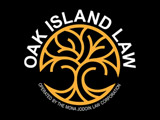Belief in the Resurrection of Jesus Christ is extremely relevant in the work of spiritual care in any Canadian health care facility. I do not deny the pluralistic religious context of our nation and happily care for members of any faith tradition who might request my services. However, I find it interesting how religious traditions considered by many to be archaic and unworthy of devotion continue to impact the deep, primal thinking of a society.
Take for instance the concept of the resurrection of the body. It is an ancient idea. Job, who it is believed lived some 400 years ago put words to his faith: “I know that my Redeemer lives, and that in the end he will stand upon the earth. And after my skin has been destroyed, yet in my flesh I will see God; I myself will see him with my own eyes – I, and not another. How my heart yearns within me! (Job 19:25-27).
Now, for the most part Canadian’s have rejected the reliability and authority of these Scriptures. Many cultural commentators identify Canada as a post-Christian nation, largely because so few of us regardless of their heritage bother to be observant. Yet most of us, unless we are annihilationist, talk about going to and being in heaven in a physical way and hold tenaciously to that belief.
How is it that we do this? There are many reasons but one is the growing belief that when it comes to spirituality, there is no one authority upon which to base one’s belief but many, many “road signs”: religious and spiritual traditions, writings, practices that we have at our disposal from which to “create” our personal spirituality. “Authority” is not a word most are comfortable with in relation to spirituality. “Absolute” truth is not recognized and our culture now declares truth in the realm of spirituality and religion to be “relative” and “personal”.
So, according to this paradigm, the Christian declaration of the importance of the resurrection of Jesus is simply an ancient conception that some continue to hang onto and good for them, just stop declaring it to be “the truth”. But those of us who believe in authoritative truth, grounded in the Bible that we believe to be the “very Word of God”, can no more stop declaring this to be “the truth” than we can affirm the existence of the Easter Bunny. Historic orthodox Christianity and a denial of the Scriptures as authoritative and absolutely true is an oxymoron.
At the bedside, as I care for those who are nearing death, all the arguments about these matters fall away and people want to have assurance that when they die they will go to heaven and that their bodies will later be resurrected. It is impossible to speak to this desire without having a “foundation of truth” upon which to stand. The one sure thing about the conception that spirituality is a personal, custom designed matter is that the only authority one has to go to is oneself. At the door of death, “oneself” is not a foundation that is very sure.
In those situations, I have nothing to offer a desperate soul but the suggestion that possibly the belief in many ways to heaven can’t provide anyone with assurance because we all know from personal experience how easy it is to be mistaken. At this moment, being mistaken is very precarious. The Christian belief in the Resurrection of Jesus is the solid foundation that those who place their trust in God have to stand on when they approach death’s door. The Scriptures say as much in these words, “If there is no resurrection of the dead, then not even Christ has been raised. And if Christ has not been raised, our preaching is useless and so is your faith.”
Chaplain's Corner was written by Bethesda Place now retired chaplain Larry Hirst. The views and opinions expressed in this blog are solely that of the writer and do not represent the views or opinions of people, institutions or organizations that the writer may have been associated with professionally.



